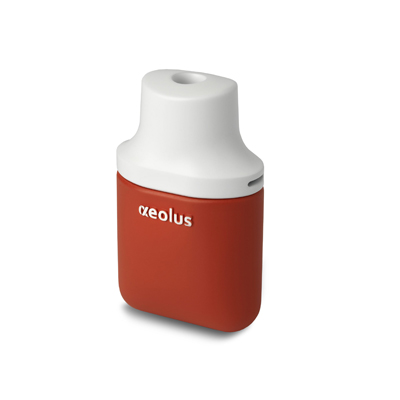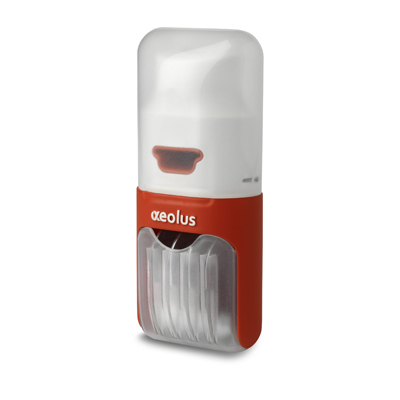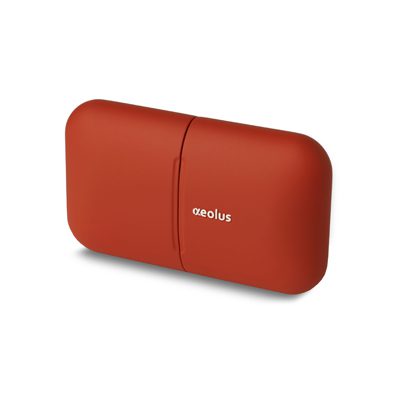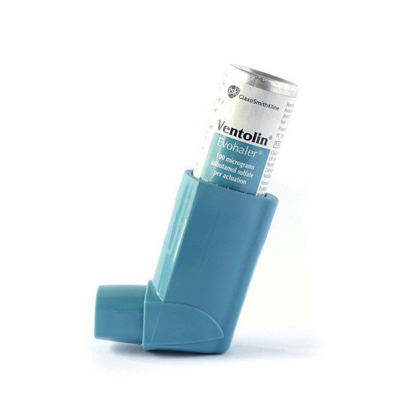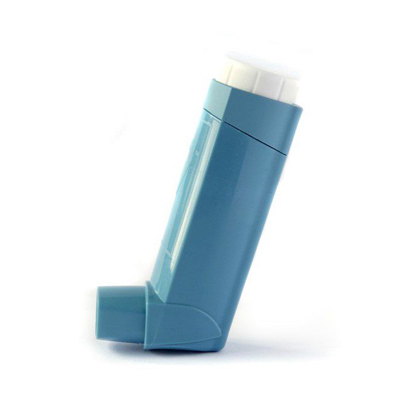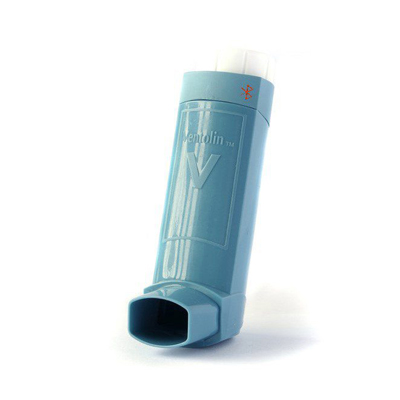αeolus technology
Cambridge Healthcare Innovations offers hope of a long-awaited step change in the field of inhalers.
αeolus is a drug storage and delivery technology that can form the core of a new generation of high performance Dry Powder Inhalers (DPIs). As a platform, it can be used across different therapies and user groups, and has a range of potential embodiments:
Our αeolus platform transforms the energy from the patient’s inhalation into the type best suited to transfer relatively small quantities of drug into the deep lungs.
Advantages of the αeolus platform
- The popularity of Dry Powder Inhalers is increasing due to the benefits that this type of technology has over other forms of inhaler. Benefits include:
- Ease of use – inherently breath-actuated, DPIs avoid the user coordination requirements that frequently prevent users of pMDIS (“puffer” inhalers) from getting their full dose
- Stability – dry-powders are inherently more stable than liquid suspensions
- Sustainability – as a propellant-free dosage form, DPIs have the potential to have a lower Global Warming Potential than existing pMDI technologies
- High payload potential – DPIs do not have the same limits on active dry payload as pMDIs
- αeolus uses novel technologies to generate a high Fine Particle Fraction (FPF), which brings two significant benefits:
- More drug delivered to the lung (where it needs to be), and less deposited in the mouth and throat (causing unpleasant side-effects) unlike traditional DPIs
- The amount of drug delivered is largely independent of the inhalation effort, meaning consistent dosing for the same user and between users
For the ‘how’, see our article on ‘The Energy-Efficiency Curve’.
- αeolus uses standard cold-formed unit-dose blisters as the primary drug container, providing excellent and well-understood protection against moisture ingress and avoiding issues associated with capsules or reservoir-based devices.
- αeolus is a platform technology that forms the ‘core’ of a range of potential inhaler embodiments. Fundamentally, all DPIs built on the αeolus platform can have identical performance, meaning that you can conduct studies using a low-cost form of αeolus device before committing to a higher-cost or bespoke device without jeopardising your insights and results from previous trials.
- There are important advantages for any company undertaking a clinical study with devices that feature αeolus:
- The dose delivered to the lungs will be more consistent for each patient as well as across the patient group, meaning the chance of success is higher
- The core αeolus technology is a platform and transferable to different inhaler designs, meaning initial testing can be conducted with a low-cost device before moving to a bespoke device with identical performance
Cambridge Healthcare Innovations offer hope of a long-awaited step change in the field of inhalers, without the need for pharmaceutical companies to conduct years of research in either developing a device with sufficient performance for their formulation, or engineering their formulation to work with sub-optimal devices.
How it works
αeolus features two key novel technologies that:
- Transform the energy from the patient’s inhalation into the type best suited to transfer drug into the deep lungs
- Make highly efficient use of that energy in breaking up (deagglomerating) and aerosolising the drug
- These technologies have patents pending – further details can be released upon publication.
q-technology
Our q-technology for metered dose inhalers (pMDI) addresses two of their major drawbacks:
- Patients inhale too quickly
- They’re unable to coordinate operating the device with inhalation
q-technology prevents patients from inhaling too fast, and helps them release the dose at just the right time as they breathe in.
We’re developing three main applications for our q-technology, all with a range of advantages over conventional inhalers.
